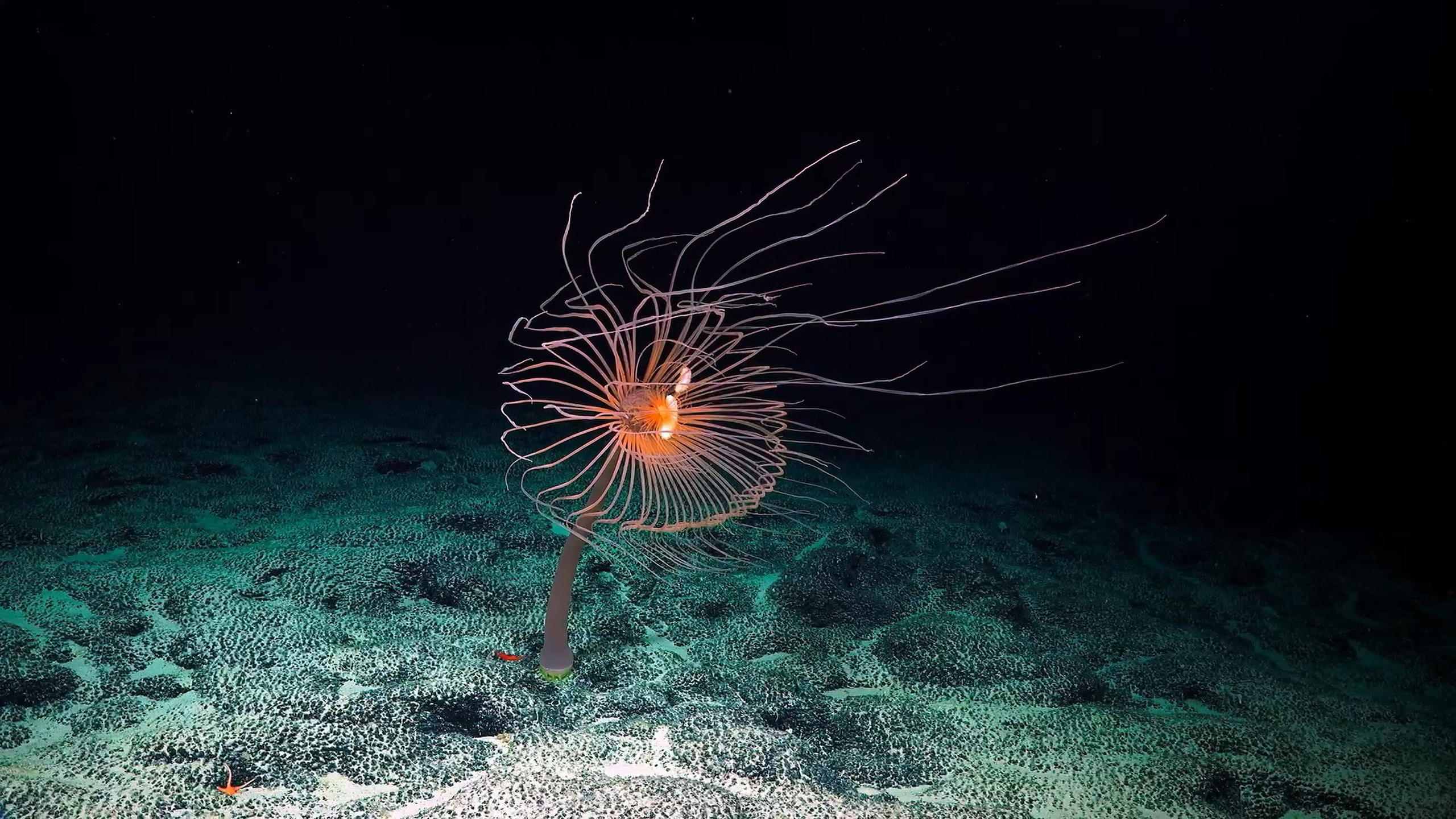The prospect of deep-sea mining may seem like a solution to our ever-growing fuel crisis. Polymetallic nodules that sit on the ocean floor are made up of the very type of metals that so-called ‘green’ companies need to build batteries. Nickel, cobalt, lithium, and graphite have major supply chain issues, as extractive mines are overwhelmed while companies and countries race to control the supply before others. On the surface, it makes sense when companies such as The Metals Company (TMC), and its CEO Gerard Barron, go on Bloomberg to pontificate about the eco-friendly process of extracting these deep-sea nodules. But, as Matthieu Rytz’s incisive documentary “Deep Rising” argues, this process can have major repercussions on our fragile biosphere.
READ MORE: 25 Most Anticipated Movies At The 2023 Sundance Film Festival
While a bit rough in its presentation and featuring unnecessary narration from producer Jason Momoa, Rytz’s film is nevertheless a clarion call to rethink how we interact with the ocean, specifically regarding deep-sea mining. It’s also a pretty damning portrait of the so-called eco-friendly movement, using Barron as a metonym for a specific type of disrupter CEO that purports to evangelize our reliance on fossil fuels. It’s all the more impressive that “Deep Rising” makes this argument with little authorial intrusion, mainly allowing Barron to speak for himself as he takes DeepGreen Metals (later rebranded TMC) around to investors and navigates the staggeringly corrupt licensing process.
Framing these wonky discussions of maritime law and drilling rights is historical context, with Rytz providing an overview of the UN’s Convention on the Law of the Sea, a series of negotiations that stretched over a decade in the ‘70s and ‘80s and helped to democratize the oceans and create the International Seabed Authority to create and enforce regulations. That the ISA then became a Kafkaesque nightmare of competing interests and that the US voted against the ratification of the UN’s regulations is perhaps the least surprising part.
Barron’s solution to the energy crisis — taking these nodules out of an environment we know next to nothing about — highlights what the film argues is the major flaw in our thinking. As one person testifies before Congress, “critical metals [have become] the new oil.” We’ve just replaced one source of energy with another. No one in the private sector, or the government, even considers rethinking our relationship with all types of extraction in the first place.
It’s also fascinating to wonder what type of film Barron thought he was signing up for as we follow him through meeting after meeting in which he crusades for his companies interests, collecting mining licenses and seed money before delivering any tangible results and pushing back on any scientists that suggest taking these nodules might have repercussions we don’t yet know about.
If the film falters, it’s that it often takes on too much for such a short runtime. In its final third, Rytz contextualizes mining operations in Indonesia, noting the unfair labor practices that often take place in these mines. It’s a worthy subject, perhaps for its own film, but more time here is needed to be fully developed. Further, the decision to cut between Barron and shots of deep-sea life while Momoa narrates is odd. While Momoa’s voice is always a welcome presence, his voiceover mainly serves to hammer home the interconnectedness of the ocean as various fish float in the camera’s frame. The choice to include such ephemeral musings seem at odds with the boardroom discussions of ocean bureaucracy and, frankly, feel like remnants of a discarded Nat-Geo documentary.
Even with these faults, “Deep Rising” is such a fascinatingly complex portrait of competing interests. Deep-sea mining is not the needed solution, and while Rytz and co. only vaguely suggest a possible alternative path, it’s worthwhile to consider the possibilities. [B+]
Follow along with all our coverage of the 2023 Sundance Film





